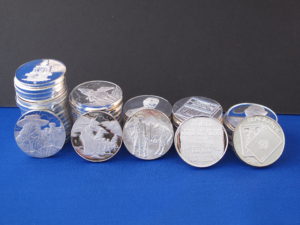 Money Metals just released it current edition of the Insider with lots of relevant information. One section in particular always generates interest. It is the Frequently Asked Questions or FAQ’s. I found this issue had some very good content and it started out with this statement. Just about every gold and silver bug has been hit with questions from doubting friends and family members to the effect of, “What’s the point in owning these shiny objects?” We get lots of questions about precious metals. Some people are curious about the basics. Others are skeptical about the case for owning gold and silver. Still others are longtime customers who have highly specialized inquiries. Here we will answer a few of the most common, most broadly relevant questions we get… Even if you’re a seasoned metals investor, you can surely find value in this FAQ.
Money Metals just released it current edition of the Insider with lots of relevant information. One section in particular always generates interest. It is the Frequently Asked Questions or FAQ’s. I found this issue had some very good content and it started out with this statement. Just about every gold and silver bug has been hit with questions from doubting friends and family members to the effect of, “What’s the point in owning these shiny objects?” We get lots of questions about precious metals. Some people are curious about the basics. Others are skeptical about the case for owning gold and silver. Still others are longtime customers who have highly specialized inquiries. Here we will answer a few of the most common, most broadly relevant questions we get… Even if you’re a seasoned metals investor, you can surely find value in this FAQ.
Comments
Frequent Question About Gold and Silver Investing — No Comments
HTML tags allowed in your comment: <a href="" title=""> <abbr title=""> <acronym title=""> <b> <blockquote cite=""> <cite> <code> <del datetime=""> <em> <i> <q cite=""> <s> <strike> <strong>